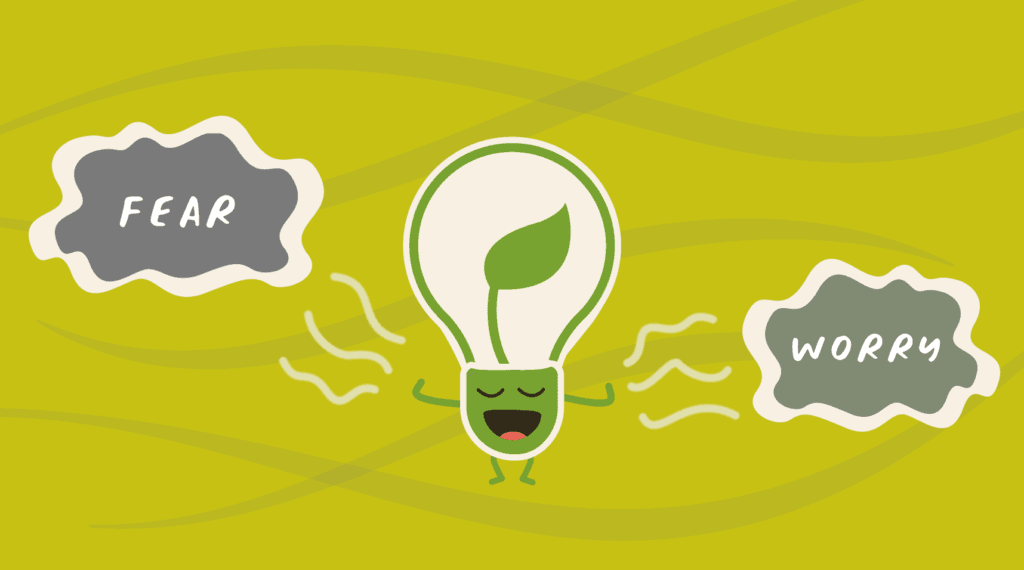This is adapted from Sylvia Bay’s bulletin for Buddhist Fellowship written in March 2020. This is a great reminder for us as we greet each new year. This pandemic throws all the curveballs we could never expect. Here is how we can l
TLDR: These are unprecedented times. The past few months have been very hard for us as the world gradually descends into a Covid-19 pandemic and we watch an accustomed way of life slowly disintegrates. Here is how we can develop faith in fearful times
Every new day seems to bring worse news and we are seized by worry and fear for the safety and well-being of ourselves and our loved ones.
It doesn’t help that nobody knows how long this pandemic will drag on. What more damage will it inflict on society and the economy before it passes? Will it even be over? Will ‘normal’ life as we know it ever return?

Why Must We Not Give In To Fear & Worry?
It brings out the worst in us. In our practice, we must learn to recognise racing thoughts driven by worry and fear.
Recognition, seeing rightly, is a necessary first step to breaking away from being trapped in an endless, vicious cycle of anxiety and panic proliferating frightful thoughts which in turn heighten the overall sense of doom.
Fear and worry are powerful akusala (unwholesome) mental states that can and often do bring out the worst in us. We become selfish and self-centred. We do silly and illogical things. We hoard food, masks, sanitisers, washing detergents, toilet papers! Fear and worry drain our goodness and humanity.
Our capacity for metta, compassion, generosity, empathy and so on dissolve under the deluge of worried and fearful thoughts. Even our noble aspirations to be good Buddhists and to do the right thing for ourselves and for others are terminated in mid-stream.
That is why it is critical that we try our utmost not to give in to fear and worry. It is not easy, but it can be done.
When you see those two mental states arising, take a deep breath and acknowledge their presence.
Call them out by name: “That is fear. That is worry.”
But don’t get defensive.
Don’t self-flagellate.
Don’t blame yourself for their presence.
Just be aware of them and other akusala mental states trailing in their wake: greed, anger, resentment and so on. Then consciously and deliberately choose not to give in to all the mental negativities.
We must not because if we are decent people and especially if we want to be good Buddhists, we will regret any unkind word said and selfish action made while caught in the grip of fear and worry.

What Do We Turn Our Minds To?
Turn our minds to Faith
Instead, turn our minds to faith (saddhā). As Buddhists, our faith is in the Triple Gem: the Buddha, Dhamma and Sangha.
The stronger our faith, the more we will feel fear and worry dissipate. Faith is so powerful that it can bring up intense joy and immense gratitude.
If you don’t believe, try this: take a deep breath and say slowly, mindfully and with conviction, “My faith in the Buddha, Dhamma and Sangha will protect me.” Don’t think. Don’t over-analyse. If you do as instructed, you will see faith surge. Joy, gratitude and humility will wash over you.
Like all mental states, faith has to be cultivated. Therefore, set aside quiet time to pay homage to the Triple Gem. More importantly, use that time to reflect on the meaning of the ancient words.
Right reflection is necessary to strengthen faith and protect the kusala (wholesome) in the mind.
Buddha
We start by recalling the Buddha’s virtues as follows but in a language that we understand and can appreciate: “The Blessed One is an Arahant, perfectly enlightened, accomplished in true knowledge and conduct, fortunate, knower of the world, unsurpassed trainer of persons to be tamed, teacher of devas and humans, the Enlightened One, the Blessed One.”
What stands out here is the fact that the Buddha was the epitome of wisdom (vijjā) and goodness (carana).
He had realised entirely on his own how his mind works and how suffering can cease.
And then out of compassion for all sentient beings, Buddha devoted the rest of his life to helping others to the same intuitive realisation. Buddha was an incredible teacher: ingenious and creative, uplifting and inspiring, with boundless compassion, drive and energy.
He taught Dhamma literally to the end.
As he laid dying beneath the Sal trees in Kusinara, Buddha reminded his students to strive on and to realise Nibbāna for themselves.
Buddha’s life was profoundly inspiring.
In these difficult times, we must remind ourselves to bring out that ‘Buddha’ potential in us and not give in to our darker instincts, namely, greed and anger. We must believe that we too are capable of great wisdom and goodness. We only have to stay committed to the practice and not lose faith.
Dhamma
Reflect on the virtues of the Dhamma as follows: “Well expounded is the Dhamma by the Exalted One, directly visible, immediately effective, calling one to come and see, leading on, to be personally realised by the wise.”
This is a reminder to ourselves to not get caught up in the running commentaries in our heads. Thought constructions are often unhelpful but they can be downright destructive if fuelled by fear and worry.
Instead, live in the present moment or as the Buddha had put it: “sandiṭṭhiko” (visible here and now) and “akāliko” (timeless). Learn to enjoy the NOW.
Be aware of how our mind can stay in the present, without chattering, at least for a while before it drifts off again. Be grateful each time you are aware of this present moment where the mind is quietly watchful.
Treasure this moment in the Dhamma. Feel blessed that with the guidance of a 2500-year old teaching, we too are enjoying this wondrous experience
Sangha
To recall the virtues of the Sangha is to remind ourselves that we must stay kusala and not willy-nilly stray into akusala. As the first part of the homage recitation goes, “The order of the Exalted One’s disciples is practising well; … is of upright conduct; … has entered the right path; … is practising correctly.”
Indeed, the noblest of Buddha’s disciples were all paragons of virtues. If we profess to be Buddha’s disciples, the least that we can do is to restrain our akusala instincts and to conscientiously cultivate kusala ones.
We learn to speak kindly and gently. In this trying time, where everyone is anxious and agitated, we should not add to another’s pain.
We shall act with consideration. We take (or buy) only what we need for survival and not clear the shelves because we can. We must be giving (cāga). For those of us with means, this is really a chance to cultivate generosity because there are very real and desperate needs out there. If we find our mind resisting to give, tame that stain of miserliness by giving more.

What must we do?
Be empathic.
We must be empathetic. Covid-19 obviously does not respect national boundaries. There is no one race or religion immune to Covid-19. The entire human race is in this together.
So we will not point fingers and look for convenient scapegoats. Instead, we should embrace all and help all alike. And finally, we will be grateful for our blessings to be living in a country where we have good people and resources to contain Covid-19 outbreak and save lives.
The fact that we remain hopeful despite the body blows to the economy and complete disruption to our social lives, shows that instinctively we trust the people in the forefront know what they are doing.
We must not add to their burden. Instead, we will be humble and wholly support them. We must think positive, stay optimistic and believe that this pandemic will pass.
May we all emerge from this defining challenge of our time, stronger in our faith, kinder in our words and conduct, and wiser in our thoughts. May your faith in the Triple Gem keep you well and at peace


